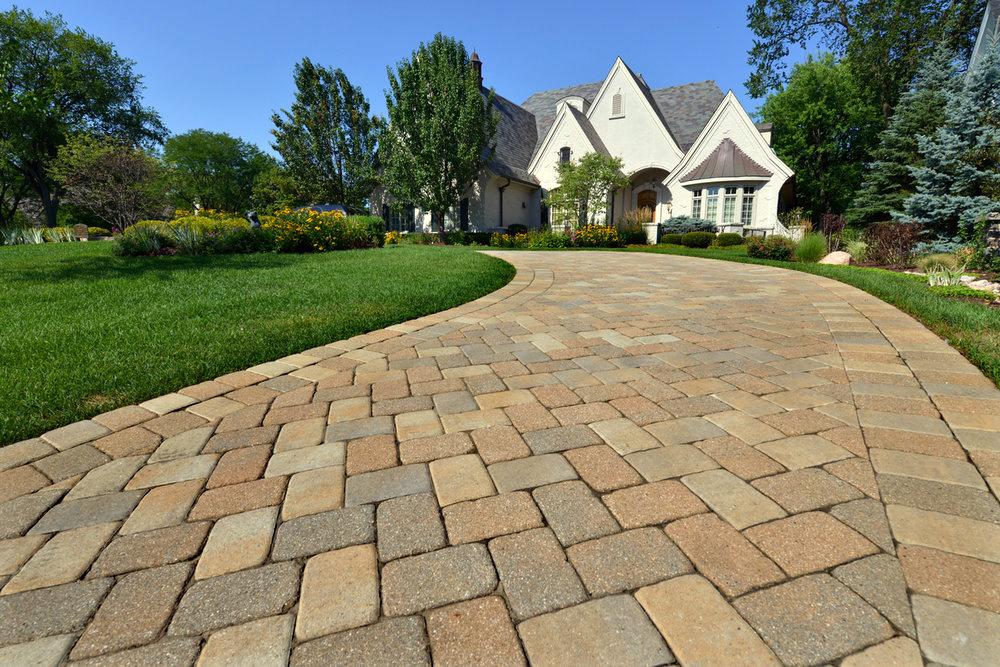
When it comes to creating a beautiful and functional driveway, choosing the right material is crucial. In the Bay Area, homeowners have two popular options: concrete or pavers. Both of these materials offer unique benefits that can enhance your home’s curb appeal and increase its value.
In this complete guide, we will explore the best concrete or pavers for your driveway in the Bay Area. From durability to cost-effectiveness, we will examine the key factors you should consider when making this important decision. Whether you are looking to replace an existing driveway or planning a new construction project, our expert insights and recommendations will help you achieve your goals with ease and confidence.
Why Concrete and Pavers?
The driveway is often the first thing that greets you when you come home. It’s an essential aspect of your property that not only serves a practical function but can also dramatically affect your home’s curb appeal. This is particularly true in the Bay Area, where homes are known for their architectural diversity and innovation.
Choosing the right material for your driveway can be challenging, considering many options available. In this comprehensive guide, we will focus on two popular materials – concrete and pavers – and help you decide which is the best option for your Bay Area home.
Concrete Driveways
Concrete driveways are popular for several reasons. They’re durable, long-lasting, and offer a sleek, clean look that can be customized to suit your aesthetic preferences.
- Traditional Concrete: Traditional concrete is cost-effective and straightforward to install. It’s ideal for people looking for a low-maintenance option that lasts for decades with proper care. However, concrete can crack over time, especially in areas with significant temperature changes.
- Stamped Concrete: If you want the durability of concrete but crave a more unique look, stamped concrete is an excellent choice. It can be textured to mimic other materials like brick, stone, or wood, providing a more high-end appearance.
- Concrete Pavers: Concrete pavers offer the strength of concrete and the aesthetic versatility of pavers. They are available in various colors, shapes, and sizes, allowing you to create a unique design for your driveway.
Paver Driveways
Pavers offer a different set of advantages. They can create a more upscale, elegant look and are also incredibly durable.
- Brick Pavers: Brick pavers exude a classic, timeless appeal. They are tough and can withstand heavy traffic. However, they are more expensive and require more maintenance than concrete.
- Stone Pavers: Stone pavers, such as granite or bluestone, can give your driveway a luxurious feel. They’re incredibly durable and resistant to weathering. However, the cost can be significantly higher than other options.
- Concrete Pavers: As mentioned above, concrete pavers combine the best of both worlds. They’re versatile, relatively affordable, and can mimic the appearance of natural stone or brick.
- Climate Considerations in the Bay Area
When choosing between concrete and pavers for your Bay Area driveway, it’s essential to consider the local climate. The Bay Area’s weather can be quite variable, with mild, wet winters and dry summers. This climate can cause concrete to crack over time due to the cycles of wetting and drying. Pavers, with their inherent joint spaces, can better handle these shifts, making them a more durable option in the long run.
Benefits and Drawbacks of Using Concrete
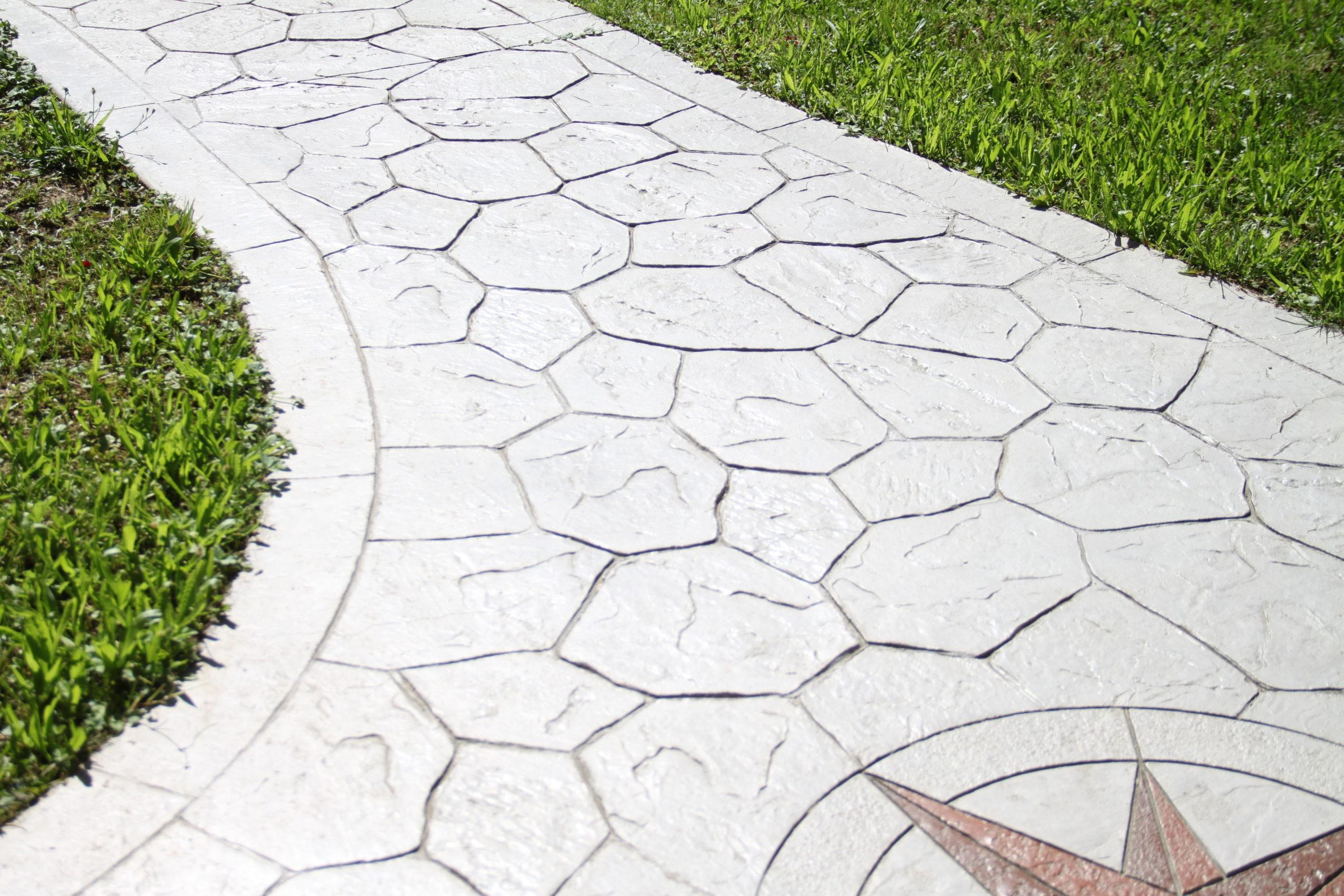
Concrete is a widely used material in construction, and for good reason. It has several benefits that make it an attractive choice for various projects, including driveways. However, like any material, it also has its drawbacks. Let’s examine both the pros and cons of using concrete.
Benefits of Using Concrete
- Durability: Concrete is incredibly durable, able to withstand high levels of traffic and weight. This makes it a popular choice for applications like driveways and sidewalks.
- Long Lifespan: When properly installed and maintained, a concrete driveway can last up to 30-40 years, making it a long-term investment.
- Low Maintenance: Concrete requires minimal maintenance. Regular cleaning and occasional sealing are usually all it takes to keep a concrete driveway in good shape.
- Versatility: Concrete can be shaped, colored, and stamped to create a variety of finishes and designs, making it adaptable to different aesthetic preferences.
- Cost-Effective: While the upfront cost of a concrete driveway can be higher than other materials, the long lifespan and low maintenance of concrete often make it a cost-effective choice over time.
Drawbacks of Using Concrete
- Cracking: Concrete can crack over time, especially in areas subject to freeze-thaw cycles. While small cracks can be repaired, larger cracks can compromise the structural integrity of the driveway.
- Color Fading: The color of concrete can fade over time due to exposure to the elements. Regular sealing can help maintain the color but is an added maintenance step.
- Staining: Concrete is susceptible to staining from substances like oil, grease, and rust. While sealing can help prevent stains, it cannot entirely eliminate the risk.
- Installation Time: Concrete requires time to cure properly. This means your driveway may be out of commission for several days after installation.
- Heat Retention: Concrete absorbs and retains heat, which can make it very hot to touch in the summer. This can also contribute to the urban heat island effect.
In conclusion, the choice to use concrete depends on your specific needs and circumstances. While it is durable, versatile, and cost-effective, the potential for cracking, staining, and heat retention are factors to consider. Consulting with a professional contractor can help you decide if concrete is the right choice for your project.
Benefits and Drawbacks of Using Pavers
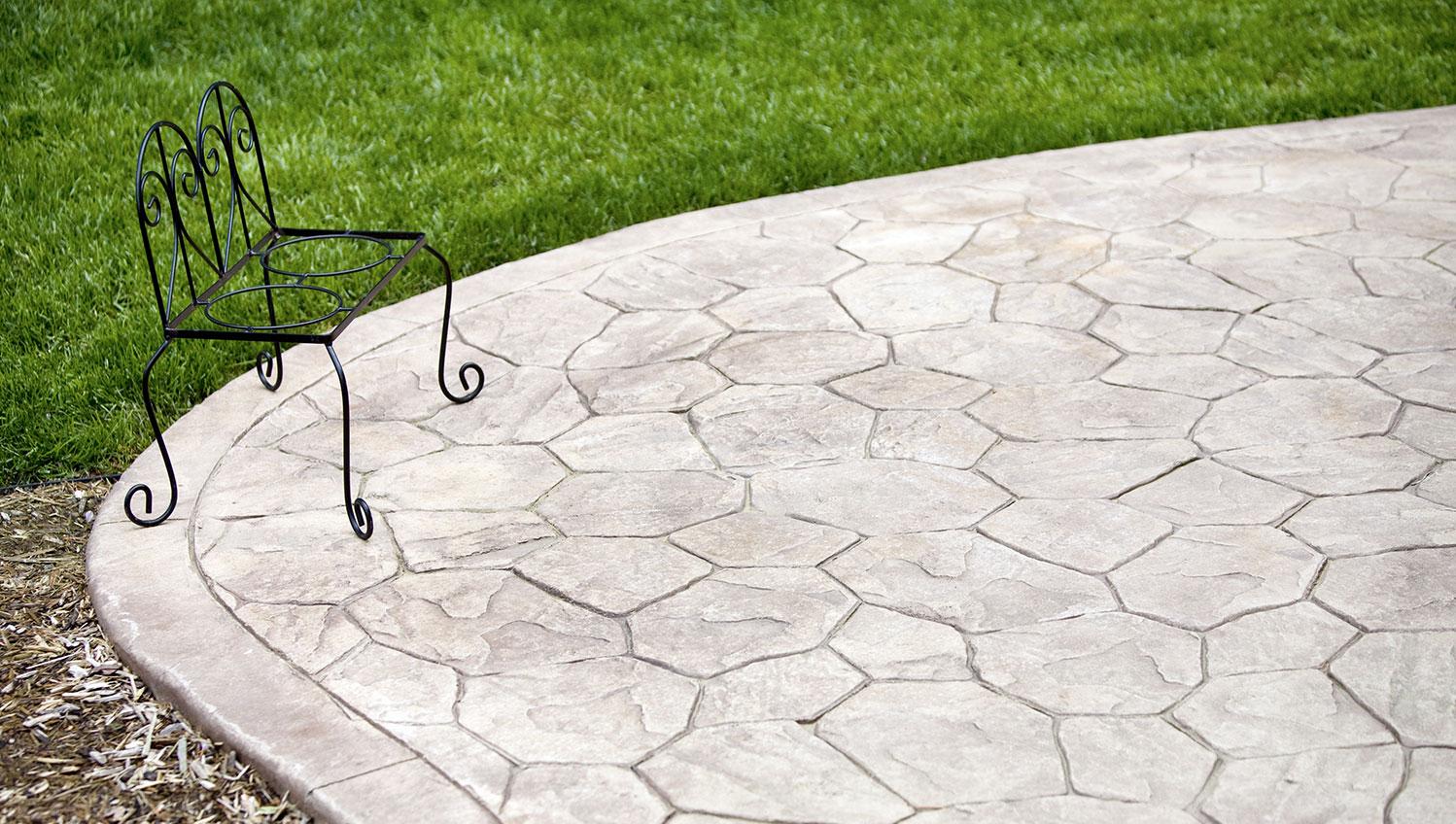
Pavers, whether made of concrete, brick, or stone, are another popular choice for driveways and other outdoor spaces. They offer a range of benefits but also come with some drawbacks. Let’s delve into the advantages and disadvantages of using pavers.
Benefits of Using Pavers
- Aesthetic Appeal: Pavers are available in a variety of colors, shapes, sizes, and materials, allowing for a wide range of design possibilities. This variety can enhance the curb appeal of your property and increase its value.
- Durability and Strength: Pavers are generally stronger than standard concrete slabs and are able to withstand heavy loads, making them suitable for driveways.
- Flexibility: Unlike solid concrete slabs, pavers can shift without cracking due to their interlocking nature. This makes them more resistant to damage from freeze-thaw cycles, soil movement, and heavy loads.
- Easy Repairs: If a paver gets damaged, you can simply replace the individual paver instead of having to repair a whole section, as you might with concrete or asphalt.
- Permeability: Permeable paver systems allow water to percolate through the joints between the pavers, reducing runoff and promoting groundwater recharge. This can be a significant benefit in areas prone to heavy rainfall or for environmentally-conscious homeowners.
Drawbacks of Using Pavers
- Cost: Pavers typically cost more upfront than concrete or asphalt. This includes the cost of the pavers themselves and the installation cost, which can be higher due to the labor-intensive process of laying each paver individually.
- Maintenance: While pavers are relatively low maintenance, they do require some upkeep. This may include regular sealing to prevent stains and maintain color, as well as refilling the joints with sand as needed to keep the pavers stable.
- Weeds: Weeds can grow in the joints between pavers, which can be a nuisance. Using polymeric sand or a sealant can help reduce this issue, but it’s an additional maintenance consideration.
- Uneven Surface: Over time, pavers can shift, leading to an uneven surface. This can create trip hazards and may require re-leveling.
- Time-Consuming Installation: Installing pavers can be a time-consuming process, particularly for larger areas, as each paver must be individually placed and properly aligned.
In summary, while pavers offer aesthetic appeal, durability, and flexibility, they also come with higher upfront costs, require more maintenance, and can lead to issues like weed growth and uneven surfaces. As always, consider your specific needs, budget, and the local climate when choosing the best material for your driveway.
Choosing the right material
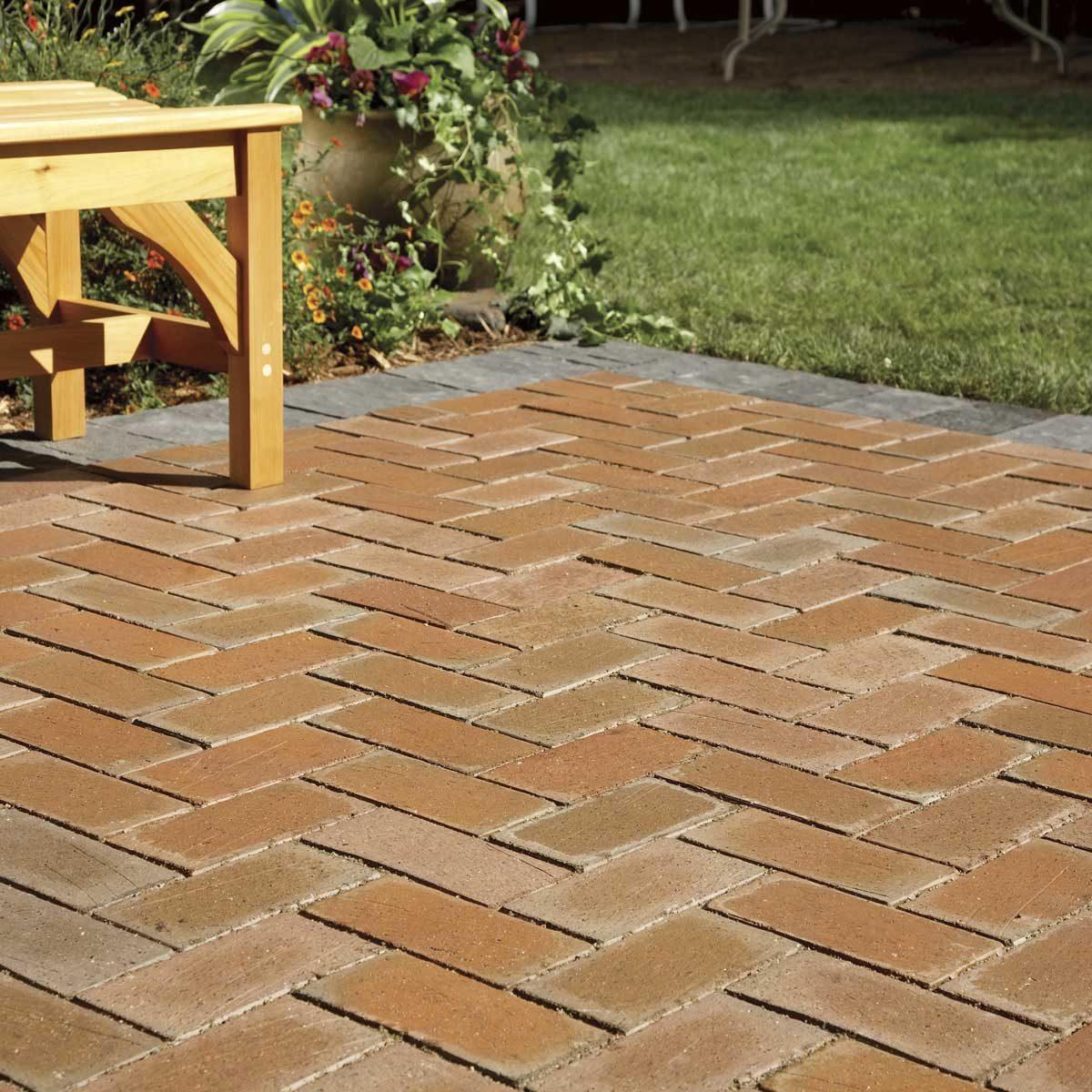
Choosing the right material for your driveway depends on a variety of factors including your budget, local climate, desired aesthetic, and maintenance preferences. Here’s a breakdown of how to choose between concrete and pavers, based on these considerations:
1. Budget
Concrete is generally cheaper than pavers, both in terms of material cost and installation. If budget is a primary concern, concrete is the more economical choice. However, remember that while pavers may have a higher initial cost, their durability, and easier repair might make them more cost-effective in the long run.
2. Climate
If you live in an area with a lot of temperature fluctuation, pavers might be the better option. Their flexibility allows them to better handle freeze-thaw cycles and soil movement without cracking. On the other hand, concrete, although durable, is prone to cracking in these conditions.
3. Aesthetics
If curb appeal and design flexibility are high on your priority list, pavers are the clear winner. They come in a variety of colors, shapes, and sizes, allowing for a wide range of design possibilities. Concrete, while not as versatile, can still be stamped or colored to enhance its appearance.
4. Maintenance
Both materials require maintenance, but the type and frequency can differ. Concrete driveways should be sealed every few years to prevent water penetration and resist stains. If cracks do appear, it can be difficult to seamlessly repair the concrete.
Pavers, on the other hand, require less frequent sealing. If a paver becomes damaged, it’s easier to replace individual pavers than to repair a large concrete slab. However, they may require additional maintenance such as refilling sand in the joints and controlling weed growth between the pavers.
5. Environmental Considerations
If sustainability is a concern, consider permeable pavers or pervious concrete. These options allow water to filter through the surface and into the ground, reducing runoff and promoting groundwater recharge.
In conclusion, the right material for your driveway is a matter of weighing your priorities. It’s a decision that should consider not just the initial cost, but also long-term durability, maintenance needs, aesthetic preferences, and environmental impact. Consulting with a local contractor can provide valuable insight into which material is best suited to your specific needs and local conditions.
Best materials for Bay Area weather
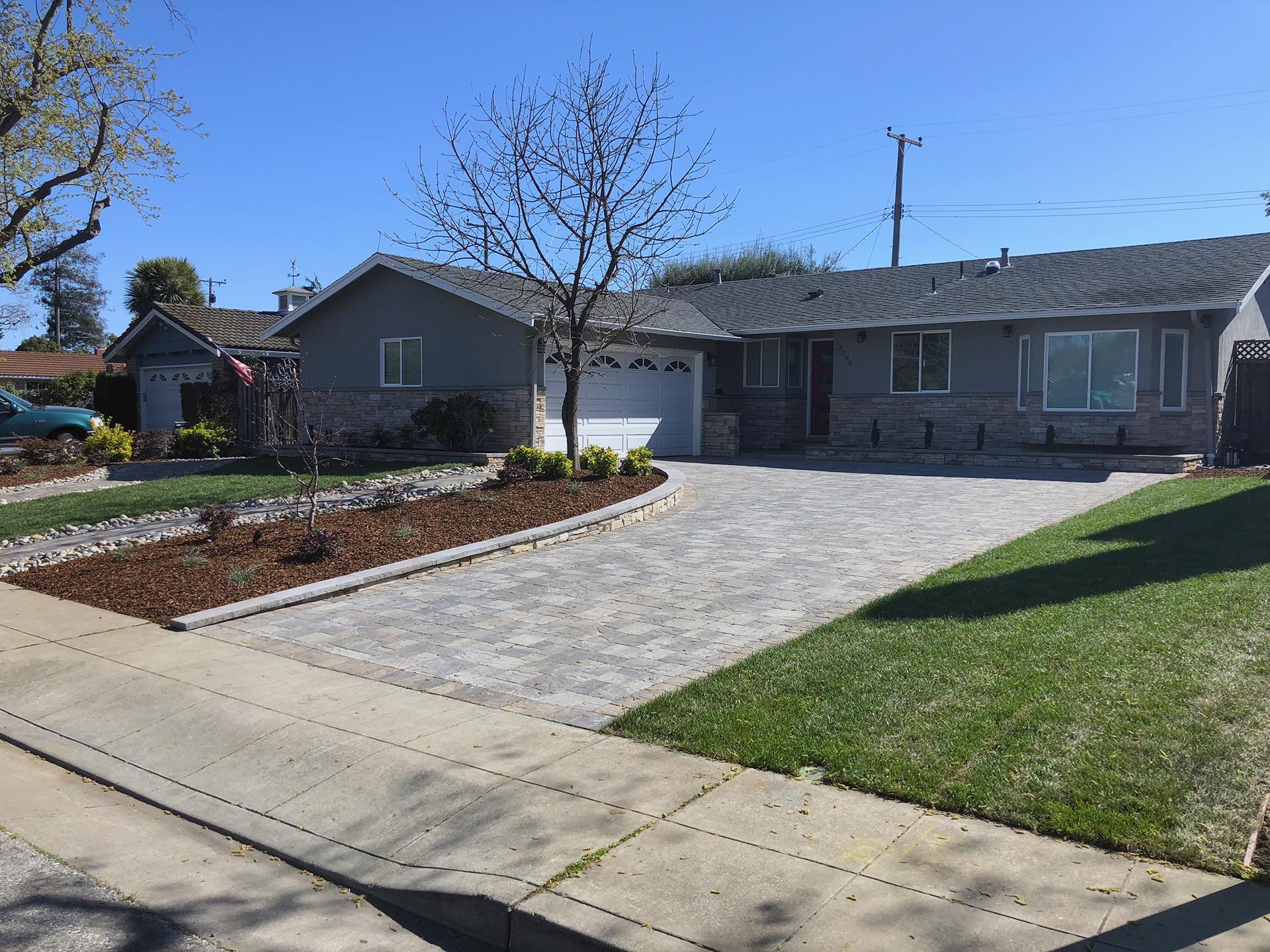
The San Francisco Bay Area presents a unique combination of climate conditions. With its Mediterranean climate, the region experiences cool, wet winters and dry, warm summers. Additionally, it’s situated in a geologically active area, which can lead to ground movement from earthquakes. These factors make the choice of driveway materials particularly important.
Here are some of the best materials for driveways in the Bay Area:
1. Interlocking Pavers
Interlocking pavers, whether made from concrete, stone, or brick, are an excellent choice for the Bay Area. Their interlocking design offers flexibility, allowing them to withstand ground movement without cracking. They also provide excellent drainage, which is crucial during the rainy winters.
2. Permeable Pavers
Permeable pavers are designed to allow water to seep through the spaces between them, reducing runoff and preventing water from pooling during heavy rain. They’re ideal for managing the Bay Area’s winter rainfall and are environmentally friendly, aligning well with the region’s focus on sustainability.
3. Pervious Concrete
Pervious concrete is another great option for managing rainfall. It’s a special type of concrete designed to allow water to pass through, reducing runoff and promoting groundwater recharge.
4. Stamped Concrete
Stamped concrete can be a good option if you’re looking for a balance of cost-effectiveness and aesthetic appeal. It can be designed to mimic the look of more expensive materials like stone or brick and withstand the Bay Area’s climate conditions. However, it may be prone to cracking over time, particularly in the event of ground movement.
5. Natural Stone
Natural stone pavers, such as granite or slate, offer a high-end look and excellent durability. They can handle both the dry and wet seasons well. However, they tend to be more expensive than other options.
What to expect during installation
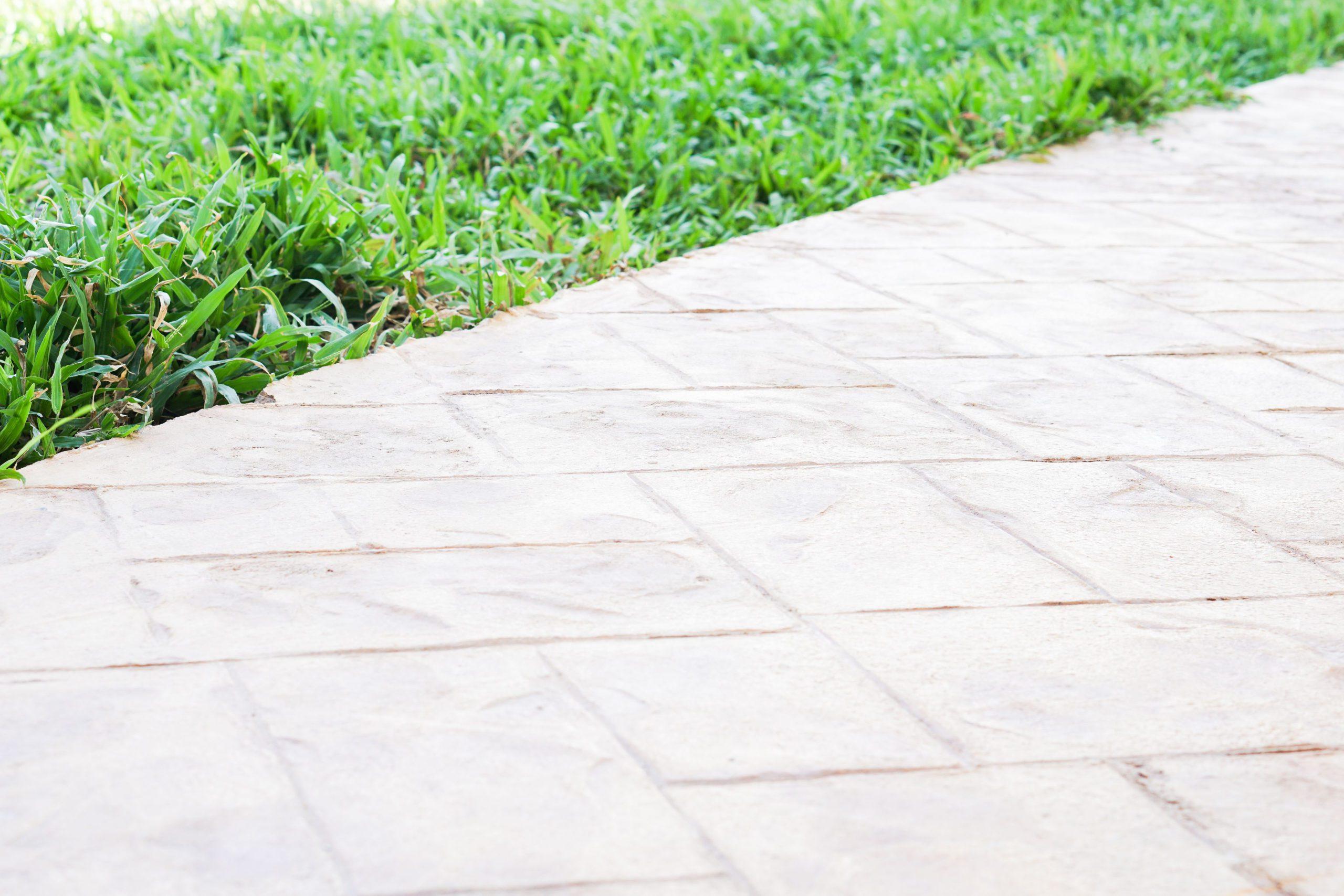
The installation process for both concrete and pavers involves several steps and requires a professional touch to ensure that the job is done correctly. Here’s what you can expect during the installation of your driveway.
Site Preparation
Before the installation begins, the site must be properly prepared. This typically involves removing any existing driveway materials, vegetation, and soil. The area will then be graded to ensure proper drainage.
For concrete driveways, a sub-base of gravel is usually laid to provide a stable foundation. For paver driveways, a layer of base material (usually a mix of crushed stone and sand) is compacted to create a solid base. The thickness of the base can vary depending on the type of soil and expected load on the driveway.
Installation
For a concrete driveway, the next step is to install form boards around the perimeter of the driveway to hold the concrete in place. Reinforcing steel may be added for additional strength. The concrete mix is then poured into the forms, and a screed is used to level the surface.
Once the concrete is leveled, it’s smoothed using a float or trowel. If a textured surface is desired, a broom or other tool can be used to create the texture. The concrete is then left to cure, which can take several days.
For a paver driveway, the installation process involves laying the pavers on the prepared base in the desired pattern. This can be a time-consuming process, as each paver must be placed and aligned individually. Once all the pavers are in place, sand is swept into the joints between the pavers to lock them in place and prevent movement.
Finishing Touches
After the concrete or pavers are installed, there are a few finishing touches. For concrete driveways, a sealant is typically applied after the concrete has cured to protect the surface and enhance its color. For paver driveways, additional joint sand may be added and compacted, and a sealant can be applied to protect the pavers and enhance their color.
Post-Installation
After installation, both concrete and paver driveways should be kept free from traffic for a few days to allow the materials to be set properly.
Keep in mind that the specific steps and timeline can vary depending on the size of your driveway, the materials used, and the weather conditions. Always work with a reputable contractor who can guide you through the process and ensure that the installation is done correctly.
Get Started on Your New Driveway Today!
If you’re considering constructing a driveway with concrete pavers, you’re faced with several crucial decisions. Fortunately, you don’t have to navigate these choices by yourself; we at Home Remodelers Orinda CA are eager to guide you through every stage of the journey. To begin crafting the ideal new driveway for your residence, don’t hesitate to reach out to us today!

